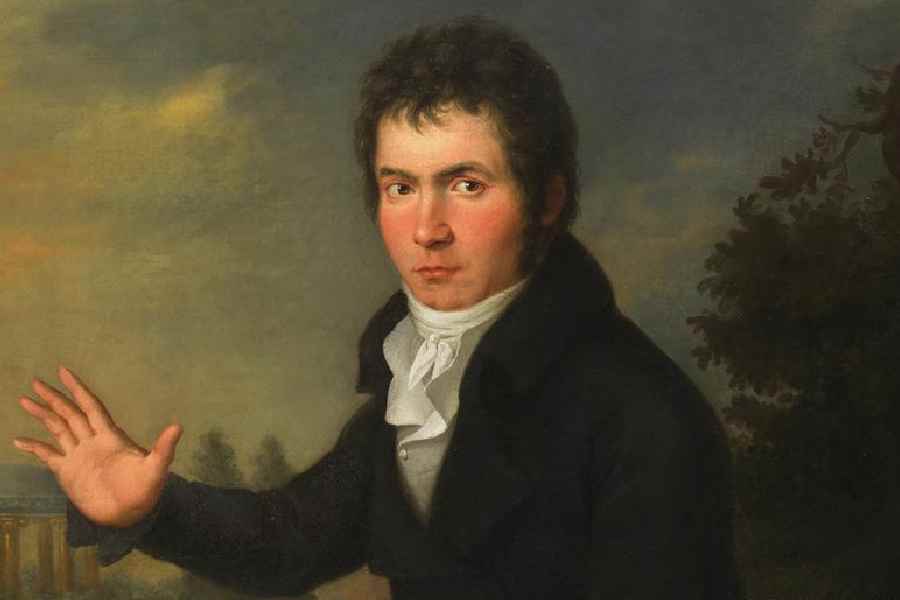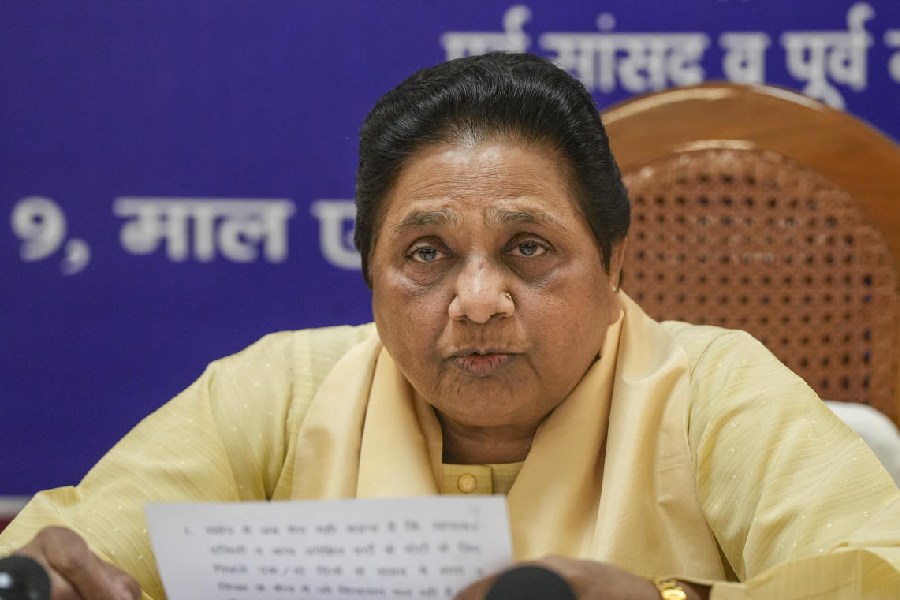The great composer Ludwig van Beethoven (1770-1827) was plagued by financial difficulties throughout his life. If he were alive today, he would have been one of the richest musicians in the world from the royalties for his Ninth Symphony alone. The monumental work, which he composed while he was completely deaf, premiered 200 years ago.
From this symphony, the finale, known as the "Ode to Joy," is one of the most recognizable motifs in classical music history. Since 1972, the almost 50 bars of music have served as the anthem of the European Union, an association of 27 states with almost 450 million inhabitants.
Though Beethoven's finale features a text by the poet Friedrich Schiller, the anthem is played without lyrics in the European Parliament.
Why Beethoven?
The selection of the anthem goes back over half a century. At the end of the 1960s, the Council of Europe first began searching for a musical symbol for the growing cohesion of European countries.
"We know that, even before the European Community was formed, there was a pan-European movement playing Beethoven's music again and again," said Malte Boecker, director of the Beethoven House in Bonn.
Beethoven's piece was therefore at the top of the shortlist. But there were other alternatives that were being seriously considered, adds Boecker.
It was quickly agreed that the selected song could not be a contemporary composition. The idea of a competition was quickly discarded, and the search turned to the "old masters."
Candidates included Georg Friedrich Händel, who was born in the German city of Halle and lived in London, and the French composer Marc-Antoine Charpentier. A fragment of his sublime "Te Deum" now serves as anthem of the Eurovision Song Contest.
Without lyrics
In 1972, Beethoven was chosen. "Beethoven is considered a European personality. And his work is associated with something that stands above a purely national perspective," notes Malte Boecker.
The Ninth Symphony is, Boecker said, "the essence of utopian music." It is music with a uniting vision.
In 1985, the instrumental version was adopted by the heads of state and government of the European Community as the official anthem of the EC.
"Ode to Joy" does not replace the national anthems of EU countries, but it expresses the values — freedom, peace and solidarity — shared by members of the union, and reflects the motto: "United in diversity."
Schiller's lyrics, in German, were left out. The reasoning is that his message of community — with words such as "Be embraced, you millions!" — also comes across through the music itself. "Perhaps there will be lyrics at some point," said a document from the Council of Europe. Perhaps in Esperanto. That has not happened yet.
Von Karajan as a co-arranger
Simply omitting the text does not create an anthem. The majestic fourth movement of the Ninth Symphony is about 25 minutes long, a symphonic painting with a choir at the end — and much too long for official occasions.
The task of arranging Beethoven's music for state events was taken on by the star conductor Herbert von Karajan (1908-1989). The chief conductor of the Berlin Philharmonic Orchestra was one of the central figures in the world's musical life and was nicknamed the "music director of Europe." He chose bars 140 to 187 and arranged them for wind instruments.
At some point, von Karajan's name disappeared from the official EU website. Perhaps the European Union wanted to distance itself from von Karajan, whose Nazi past was increasingly coming into focus. In any case, further arrangements were commissioned — including from the French composer Christian Guyard.
Beethoven as a European
The question remains: What would Ludwig van Beethoven have said about the European idea, and about his Ninth serving as the anthem for a united Europe?
Beethoven was an influential figure of the emancipatory political movement of his era, Boecker said: "In today's world he would definitely be a convinced European!"
And the composer certainly wouldn't have said no to the royalties either.










